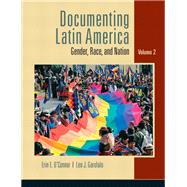
Erin E. O’Connor is an associate professor of history at Bridgewater State College in Massachusetts. She has over a decade of teaching experience in both private and public institutions of higher education, where she has taught a wide variety of courses on Latin American and world history. O’Connor’s research has focused on gender, ethnicity, and nation-state formation in nineteenth-century Latin America, which she explored in her first monograph, Gender, Indian, Nation: The Contradictions of Making Ecuador, 1830-1925 (Arizona, 2007). Her current research scrutinizes the multiple public implications of domesticity in Spanish America, investigating how both elite and poor individuals and families engaged with changing gender laws.
Leo J. Garofalo is an associate professor of history at Connecticut College. Since 2000, he has taught majors and non-majors in the US and South America about colonial Latin America, the African Diaspora, modern politics and revolution, and immigration and migration issues. Garofalo's research explores the making of race in colonial Andean societies and the movement of people of African descent in the early Iberian worlds embracing three continents. His most recent book explores the impact of the Diaspora on the Americas and is co-authored with Kathryn Joy McKnight, Afro-Latino Voices: Narratives from the Early Modern Ibero-American Atlantic World, 1550-1812 (Hackett, 2009). Currently he is researching the experiences of black sailors, soldiers, and popular saints and how they carved out a place of belonging and respect for themselves within the Spanish and Portuguese empires.
Thematic Index
Preface
Introduction: “Doing” Latin American History in the Age of Nation States
Maps
Section I: The Age of Transformation and Revolt, 1780-1825
Introduction to Section
1) Father José María Morelos and Visions of Mexican Independence, Erin E. O’Connor, Bridgewater State College
2) The Many Views of Simón Bolivar, Erin E. O’Connor, Bridgewater State College
3) Forging a Guerrilla Republic, Javier F. Marión, Emmanuel College, Boston
4) Slavery, Race, and Citizenship in the Empire of Brazil: Debates in the Constituent Assembly of 1823, Kirsten Schultz, Seton Hall University
Section II: Nineteenth-Century Elite Views of the Nation
Introduction to Section
5) Argentine Domingo Faustino Sarmiento’s Views on Civilization and Barbarism, Erin E. O’Connor, Bridgewater State College
6) Citizenship through Marriage: De Facto Naturalization in 1840s El Salvador, Jordana Dym, Skidmore College
7) Liberalism and its Limits: Guillermo Prieto on Patriarchy, Politics, and Provincial Peoples, John Tutino, Georgetown University
8) Marriage Laws and Nation in Ecuador, 1860-1911, Erin E. O’Connor, Bridgewater State College
9) Debating the “Free Womb” Law in Brazil, 1871, Erin E. O’Connor, Bridgewater State College
Section III: Ordinary People and State Officials in the Nineteenth Century
Introduction to Section
10) Invoking the State’s Support: Estranged Spouses, In-laws and Justices of the Peace in Peru, Tanja Christiansen, Independent Scholar
11) The Death of Francisco Bravo: Marriage, Violence, and Indians in Nineteenth-Century Ecuador, Erin E. O’Connor, Bridgewater State College
12) Minors, Marriage, and the State: “Habilitación de edad” in Nineteenth-Century Mexico, Daniel Haworth, University of Houston-Clear Lake
13) Memories of Rebellion and Subjugation in Southern Chile, Joanna Crow, University of Bristol
Section IV: Changing notions of Race, Gender, and Nation, ca. 1900-1950
Introduction to Section
14) José Martí and Gilberto Freyre Claim “Raceless Nationalism” in Cuba and Brazil, Erin E. O’Connor, Bridgewater State College
15) We Must Civilize Our Cayapa: Padre Antonio Metalli’s Assessment of Race and Gender in Coastal Ecuador, Nicola Foote, Florida Gulf Coast University
16) Peasants, Gender, and the Mexican Revolutionary Conflict, Erin E. O’Connor, Bridgewater State College
17) “Bettering the Tarahumara Race:” Indigenismo in Mexico, 1906-1945, Julia Cummings O’Hara, Xavier University
18) Rescuing the Sacred Mission of Motherhood: Brazil’s Campaign for Healthy Babies and Educated Mothers, Okeizi Otovo, University of Vermont
Section V: Women’s Struggles with Gender Conformity in the Twentieth Century
Introduction to Section
19) Maria Lacerda de Moura Advocates Women’s Self-Realization Through Free Love and Conscientious Maternity, Susan Besse, City University of New York
20) Eva Perón’s Views of Women and Society in Argentina, Erin E. O’Connor, Bridgewater State College
21) Gender and Socialism in Cuba, Erin E. O’Connor, Bridgewater State College
22) A Bolivian Tin Miner’s Wife Goes to the International Women’s Tribunal in 1975, Erin E. O’Connor, Bridgewater State College
Section VI: Foundations of Modern Indigenous Movements
Introduction to Section
23) Socialism and Indigenous Rights in Allende’s Chile, Joanna Crow, University of Bristol
24) Indigenous Integration and Legal Changes in Paraguay, René Harder Horst, Appalachian State University
25) For Land and Dignity: Zapatista Goals in Mexico in the 1990s, Erin E. O’Connor, Bridgewater State College
26) International Indigenous Alliances for Global Justice, Marc Becker, Truman State University
Section VII: Power and Politics at the Transition into the Twenty-First Century
Introduction to Section
27) Rigoberta Menchú Tum: From Indigenous Peasant to Nobel Laureate, Erin O’Connor, Bridgewater State College
28) An Afro-Brazilian Activist Advances from the Favela to the Senate, Leo J. Garofalo, Connecticut College
29) Verónica Michelle Bachelet Jeria: Chile’s First Woman President, Karin Alejandra Rosemblatt, University of Maryland
30) “We Are all Presidents:” Evo Morales and the Challenges of an Indigenous-Popular Government in Bolivia (2006), José Antonio Lucero, University of Washington
Glossary
The New copy of this book will include any supplemental materials advertised. Please check the title of the book to determine if it should include any access cards, study guides, lab manuals, CDs, etc.
The Used, Rental and eBook copies of this book are not guaranteed to include any supplemental materials. Typically, only the book itself is included. This is true even if the title states it includes any access cards, study guides, lab manuals, CDs, etc.